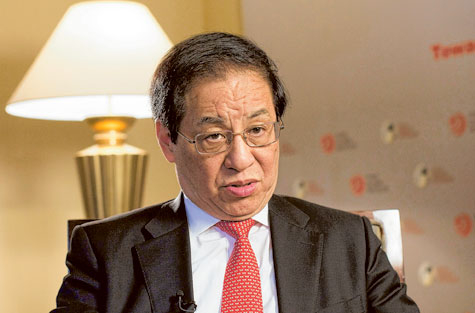
Beijing: China’s former banking chief called the Federal Reserve’s third round of quantitative easing “irresponsible,” while an official at the regulator said the stimulus won’t provide sustained support to the US economy.
“It’s irresponsible to the US, and also irresponsible to us,” Liu Mingkang, former chairman of the China Banking Regulatory Commission (CBRC), told Bloomberg News at a conference in Beijing. He declined to elaborate.
Liu’s comments were the latest from China warning of risks from the US stimulus programme, which drove commodities higher and spurred stocks to the highest levels since 2007. QE3 is more likely to boost growth “for a period” of time than provide longer-term support, Yan Qingmin, assistant chairman of the CBRC, said.
The US central bank said on Thursday it will expand its holdings of long-term securities with open-ended purchases of $40 billion of mortgage debt a month, and hold the federal funds rate near zero until at least the middle of 2015 to boost growth and employment. Fed Chairman Ben S. Bernanke declined to provide specific estimates of how long the purchases might last.
The latest move was largely a result of “political considerations” ahead of the US presidential elections, Yan said. The country votes on November 6.
Yan echoed a front-page commentary published by an official newspaper, saying global capital markets shouldn’t have overly high expectations for any boost from QE3.
Asset bubble
The US stimulus may bring “more risk than return,” according to Yang Bo, a reporter at the China Securities Journal. “Compared with the previous two rounds of quantitative easing, the external environment this time is very different as growth in emerging economies is slowing and Europe’s debt crisis is still unfolding,” according to the commentary.
Hong Kong regulators also warned of risks from the US stimulus, with Norman Chan, chief executive of the Hong Kong Monetary Authority, saying the US stimulus increases the chance of the city’s asset market overheating.
The Hong Kong central bank tightened mortgage lending following Chan’s comments, limiting the maximum term on all new mortgages to 30 years. Mortgage payments for investment properties can’t be more than 40 per cent of buyers’ monthly incomes, from the current 50 per cent, it said.
While the Fed’s decision makes sense for the US economy, it carries risks for global inflation as commodity prices may rise, Guo Jianwei, deputy director of the Chinese central bank’s second monetary policy department, was cited as saying by Market News International.












